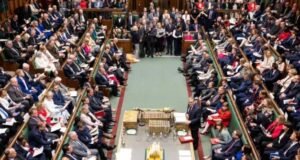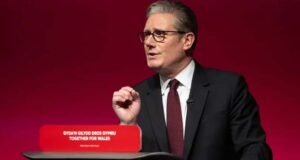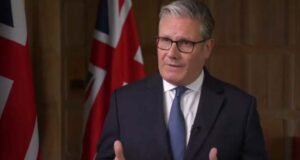
Each council will meet three times a year, twice with Mrs May and once with a senior cabinet minister.
They will provide advice and policy recommendations on big business issues.
‘Huge opportunity’
Each group will be co-chaired by two business leaders and have “around ten members representing core sectors of the UK economy, as well as a representative from the UK’s key business groups.
Prime Minister Theresa May said: “Brexit presents a huge opportunity to build a better, stronger economy for people all over the country.
“So I’ve asked these new councils to advise us on the opportunities and challenges facing business as we shape the UK for the future.”
The co-chairs will be at Downing Street on Wednesday to thrash out their forthcoming agendas and meetings timetables.
Executives from BT, BAE, Rolls-Royce, Prudential, Santander, Tesco, Timpson, ITV and GSK will be in attendance, as well as representatives from the CBI, IOD, EEF, and FSB business groups.
Sir Roger Carr, chairman of BAE Systems and co-chair of the committee looking at the industrial, manufacturing and infrastructure sectors, said: “We are a vital part of the wealth creating machinery of the country where improved training, productivity and exporting will be the cornerstones of our global success.
“Engaging with the prime minister to tackle these issues in a focused and practical manner is a welcome and important step forward in achieving our collective growth ambitions.”
Downing Street said the co-chairs would be responsible for preparing each council’s agenda, ensuring all members were briefed and driving progress on major opportunities for their business sectors.
‘Destructive’
The initiative comes days after more than 70 business figures signed a letter to the Sunday Times calling for a public vote on the UK’s Brexit deal.
The chief executive of Waterstones and former Sainsbury’s boss Justin King were among those saying a “destructive hard Brexit” would damage the UK economy.
A group called Business for a People’s Vote will launch on Thursday.
A Downing Street source told the BBC the Prime Minister was clear that there would be no new referendum.
The government’s overtures to business are rapidly becoming a symphony.
After two years of feeling they were “outside the tent” when it came to Brexit strategy and policy, Theresa May is welcoming as many business big hitters back inside as she can.
It’s quite a change from 2016.
One of first things Theresa May did when taking over from David Cameron was to disband his business council. The new prime minister and her advisers had watched voters, disillusioned with big business, ignore the Brexit warnings from industry and assessed that being seen as close to them was a political mistake.
Fast forward to today’s announcement that she is founding no fewer than FIVE new business councils to give “regular, high level advice and policy recommendations”.
 Weekly Bangla Mirror | Bangla Mirror, Bangladeshi news in UK, bangla mirror news
Weekly Bangla Mirror | Bangla Mirror, Bangladeshi news in UK, bangla mirror news







